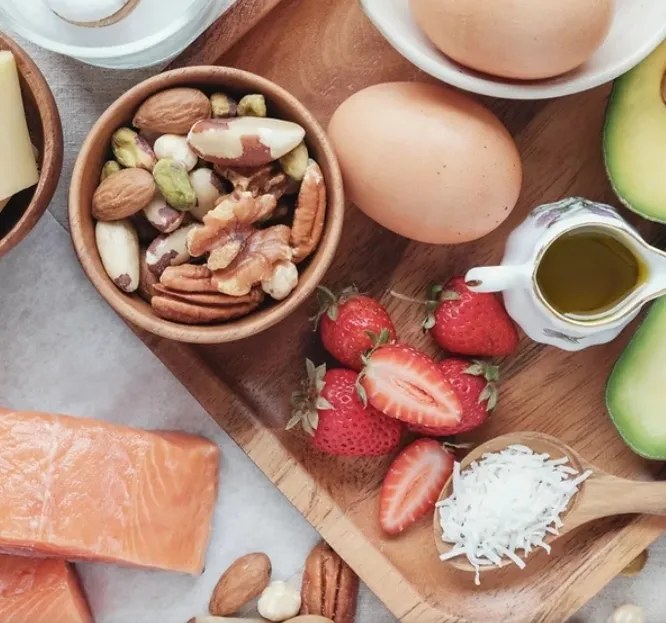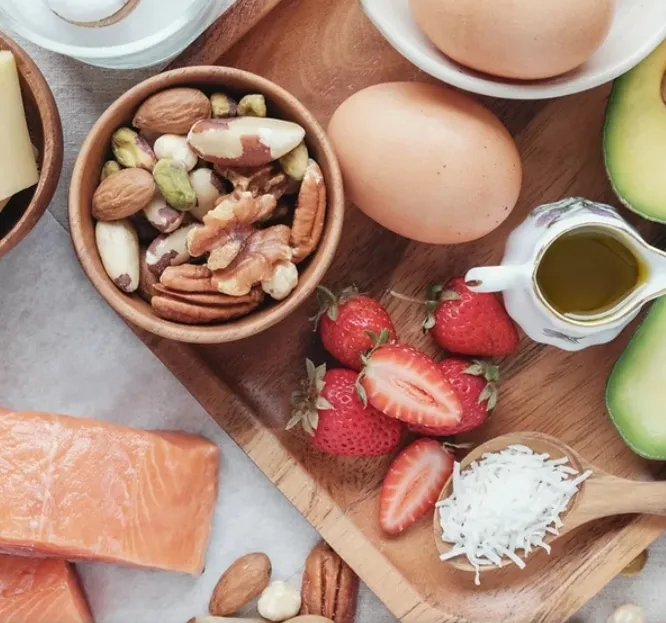Together with proteins and fats, carbohydrates provide the body with calories that are transformed into energy. Depending on the type of carbohydrate in the food, it will be absorbed faster, you will feel more or less full and it will be more or less efficient in maintaining a healthy state.

Carbohydrates: organic substances consisting of a molecule of carbon, hydrogen and oxygen. Their main function is to supply the body with energy and they are the most abundant component in food.
Types of carbohydrates
According to their nutritional quality, they have two classifications:
- Simple carbohydrates: Characteristics of simple carbohydrates.
Sugars that are quickly converted into glucose:
- Minimal feeling of satiety when ingested.
- Promote an immediate rise in blood sugar, leading to pancreatic fatigue.
Foods containing simple carbohydrates:
- White bread. Soft drinks.
Complex carbohydrates:
- Properties of complex carbohydrates: The conversion into glucose is gradual. The absorption process is slower , therefore produces a heavier satiety sensation. Several contain fiber. Causes the blood sugar level to rise slowly and steadily.
Foods containing complex carbohydrates:
- Vegetables Cereal Cereal Brown bread.
Healthy carbohydrates:
- These are complex carbohydrates. Contains little sugar or refined grains.
- It is low in sodium, saturated fats and trans fats.
- Part of its composition is dietary fiber.
- Examples of healthy carbohydrates: asparagus, cabbage, carrots, eggplant, beans, avocado, peas, garlic, onions, potatoes, squash, spinach and tomatoes.
Less healthy carbohydrates:
- These are simple carbohydrates.
- They contain a lot of sugar or refined grains.
- They are low in nutrients and fiber.
- They are high in sodium, saturated fats and trans fats.
- They are partly made up of additives.
- Examples of unhealthy carbohydrates: soft drinks, cakes, white bread, candy, bacon, fried foods, gelatins and preservatives.
Sweeteners: Substances capable of adding a sweet taste to foods.
Sweeteners can be classified as follows:
- Natural: glucose, fructose, galactose, sucrose, lactose and honey.
Obtained from natural materials:
- Starch derivatives , Example: glucose syrup.
- Neosugars . Example: fructo-oligosaccharides.
- Sugar alcohols: They are obtained from glucose or sucrose, particularly they are absorbed slowly, so they are usually used in the elaboration of products for diabetic patients. For example: sorbitol, mannitol, xylitol.
- Intense sweeteners Powerful vegetable sweetener: Example: glycyrrhiza. Concentrated sweeteners of artificial origin. They are chemically independent of sugar, do not provide energy, are 200 times sweeter than ordinary sugar and are mainly used in the manufacture of products for diabetic patients. Examples: saccharin, aspartame, acesulfame, cyclamate and yatam.
Functions performed by carbohydrates in the body:
- Energy function: it supplies about 4 kilocalories per gram consumed, this number being an approximate. Most of the tissues of our organism are able to store the energy guaranteed by fats and carbohydrates, however a number of them cannot use fats, and instead require a constant supply of glucose, this is what happens with the red blood cells and nervous tissues found in the brain.
- Structural function: Two types of sugars are involved, ribose and deoxyribose, both of which are structural components of the nucleic acids that make up DNA and RNA, where the genetic information resides. Sugar forms part of the cell wall.
- Sensory function: It imparts flavor, aroma and texture to food, which enhances the sensation of pleasure when eating.
- Digestive function: the fiber in some carbohydrate foods has important functions, such as water retention and avoidance of constipation. It also helps in decreasing the actual risk of developing some chronic diseases, such as diabetes, colon cancer and cardiovascular diseases.
Food sources of carbohydrates:
- Simple sugars: Roughly speaking, the sources we are most associated with are the result of industrial processing, but this does not mean that we do not find it in other raw, say natural, foods. For example, honey, fruit, milk and others.
- Starch: They are found in legumes, potatoes, rice, corn and derivatives of grains such as bread, pasta, flour and others.
- Fiber: We find high concentration of fiber in: beans, chickpeas, lentils, peas, wheat, rice, barley, rye, oats, cereal flour, bread, crackers, nuts, seeds, fresh fruit and vegetables.
The effect of carbohydrates on health.
Consequences of carbohydrate deficiency in the body:
- Energy drops, and this decrease can cause headaches, dizziness and fatigue.
- Changes in memory and how the brain processes information. Impairments in the learning process.
- Gastrointestinal problems that arise, e.g., dehydration, can lead to constipation.
- Increased risk of developing chronic diseases, such as diabetes and colon cancer.
Consequences of excess carbohydrates in the body:
- Normalized carbohydrate addiction in the diet can lead to obesity, which increases the risk of cardiovascular disease and diabetes.
- The likelihood of developing diabetes increases due to the sustained presence of high glucose levels.
Want to learn more about holistic nutrition?

